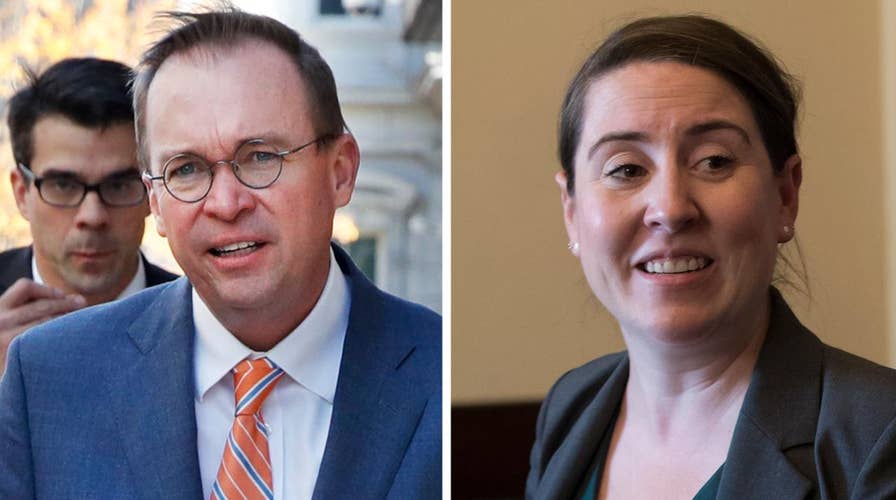CFPB power struggle rages on between Muvlaney, English
The White House budget director says he'd still get rid of the agency, while Leandra English is suing the Trump administration over the appointment; Kristin Fisher has the roundup for 'Special Report.'
The Consumer Financial Protection Bureau is ensnared in a very public tug-of-war over who its next leader will be.
Richard Cordray, the former head of the agency, announced his resignation on Nov. 24 – setting off the kerfuffle over who would succeed him. Before he resigned, he appointed Leandra English to be his deputy director, elevating her to take over the CFPB.
But President Trump picked Mick Mulvaney, the current budget director, to take over.
English has filed a lawsuit to challenge the Trump administration’s takeover of the CFPB.
Here’s what you need to know about the agency and the fight to lead it.
What is the Consumer Financial Protection Bureau?
Created in 2011, the government agency serves as a consumer watchdog that provides accountability for the enforcement of federal consumer financial laws, according to its website.
The CFPB was created through the Dodd-Frank Wall Street Reform and Consumer Protection Act.
Among other things, the CFPB fields complaints, supervises companies and monitors the financial markets for risks.
The CFPB’s website lists Mulvaney as its acting director.
Why have Republicans and Trump been critical of the CFPB?
Appointed by former President Barack Obama, Cordray and the CFPB were heavily criticized by Republicans for what they called over-zealous practices.
Mulvaney once called the CFPB a “sick, sad joke” and an example of “how a bureaucracy will function if it has no accountability to anybody.”
MULVANEY CRACKS DOWN ON CFPB AS WHITE HOUSE INSISTS HE’S IN CONTROL
"It turns up being a joke, and that’s what the CFPB really has been, in a sick, sad kind of way, because you’ve got an institution that has tremendous authority over what you all do for a living," he told the Credit Union Times in 2014.
But Mulvaney recently promised to keep the agency open.
“Rumors that I’m going to set the place on fire, or blow it up or lock the doors are completely false. I am a member of the executive branch of the government; we intend to execute the laws of the United States, including the provisions of Dodd-Frank,” the former Republican congressman said.
What’s going on with the agency now?
Both English and Mulvaney showed up for work on the first day and sent conflicting emails to employees regarding who was in charge. Mulvaney also ordered a 30-day hiring freeze.
As the pair battle over leadership, any actions taken by the CFPB during this time are likely to come under legal scrutiny, as well from banks, credit card and other financial companies that it oversees. Fines are not likely to be imposed, and regulations are unlikely to be written during this time.
Most of the regulations under Cordray are already finalized, including one pending in front of Congress regarding payday lending. But there are other potential regulations, including how banks do small business lending and disclose data on home mortgages that are still in the works.
The Associated Press contributed to this report.




